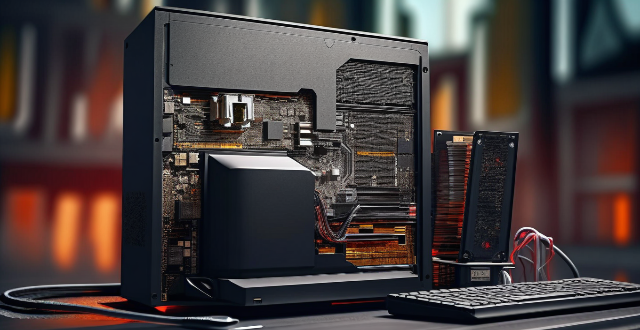When selecting a hard drive for your computer, considerWhen selecting a hard drive for your computer, consider, budget, and compat consider storage capacity, performance needs, budget, and compatibility with your system. Choose between an HDD for cost-effective storage or an SSD for faster performance. Ensure the drive is compatible with your computer's interface, like SATA or NVMe/PCIe, and check the physical size to fit your case. Look into additional features such as cache size, security options, and warranty length. Finally, read reviews and compare prices to make an informed decision.

How to Choose the Right Hard Drive for Your Computer
When selecting a hard drive for your computer, there are several factors you need to consider to make sure you choose the right one. Here's a step-by-step guide to help you through the process:
1. Determine Your Needs
First, assess what you will be using the hard drive for:
- Storage Capacity: How much data do you plan to store? This will determine the size of the drive you need. Common sizes range from 500GB to multiple terabytes.
- Performance: Do you require fast read/write speeds? If so, an SSD (Solid State Drive) might be more suitable than an HDD (Hard Disk Drive).
- Budget: Hard drives vary in price based on their type, size, and performance. Set a budget before shopping.
2. Choose the Type of Hard Drive
There are two main types of hard drives:
- HDD (Hard Disk Drive): Traditional spinning disk drives that are cheaper per gigabyte but slower and noisier.
- SSD (Solid State Drive): Faster, quieter, and more durable than HDDs but typically cost more per gigabyte.
3. Consider the Interface
Make sure the hard drive you choose is compatible with your computer's interface:
- SATA: Most common interface for HDDs and many SSDs. Ensure your motherboard has enough SATA ports and the correct version (SATA III is faster than SATA II).
- NVMe/PCIe: For the fastest SSDs; requires a different type of slot on your motherboard.
4. Look at Form Factors
The physical size of the hard drive matters, especially in smaller cases or laptops:
- 3.5-inch: Standard size for most desktop HDDs and some SSDs.
- 2.5-inch/7mm and 9.5mm: Common for laptop drives and some desktop SSDs.
- M.2: A small form factor used for NVMe SSDs.
5. Check Compatibility and Extra Features
Some additional features and compatibility checks include:
- Cache Size: Larger cache can improve performance in HDDs.
- Security Features: Some drives offer encryption for added data security.
- Warranty: Longer warranties can provide peace of mind.
- Brand Reputation: Opt for reputable brands known for reliability.
6. Read Reviews and Compare Prices
Lastly, do some research:
- Read User Reviews: They can provide insights into real-world performance and potential issues.
- Compare Prices: Check different retailers to find the best deal.
By following these steps, you should be able to choose the right hard drive that meets your needs, budget, and system requirements.